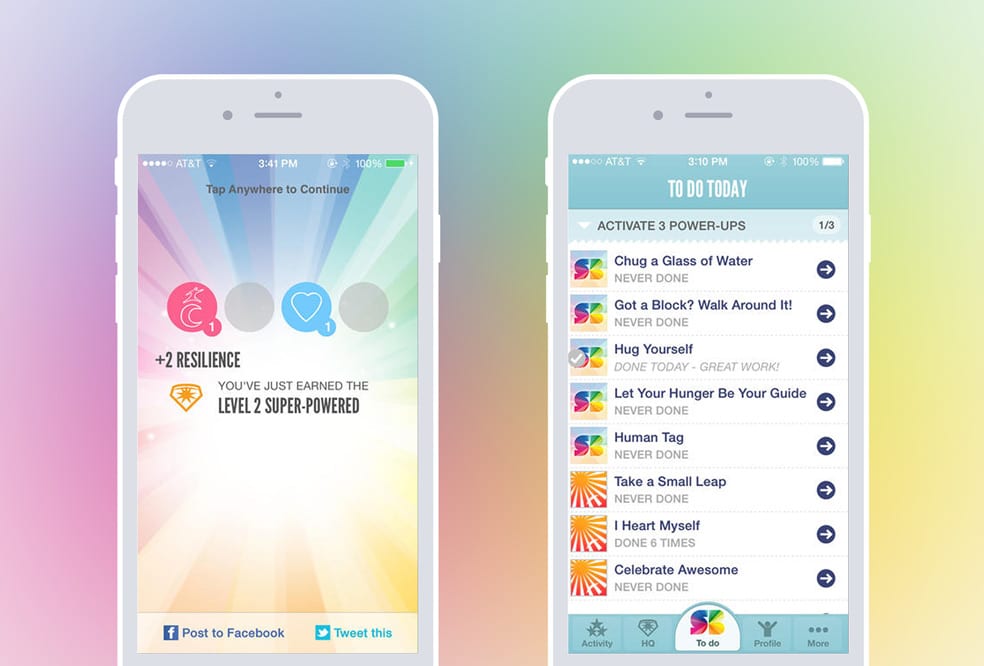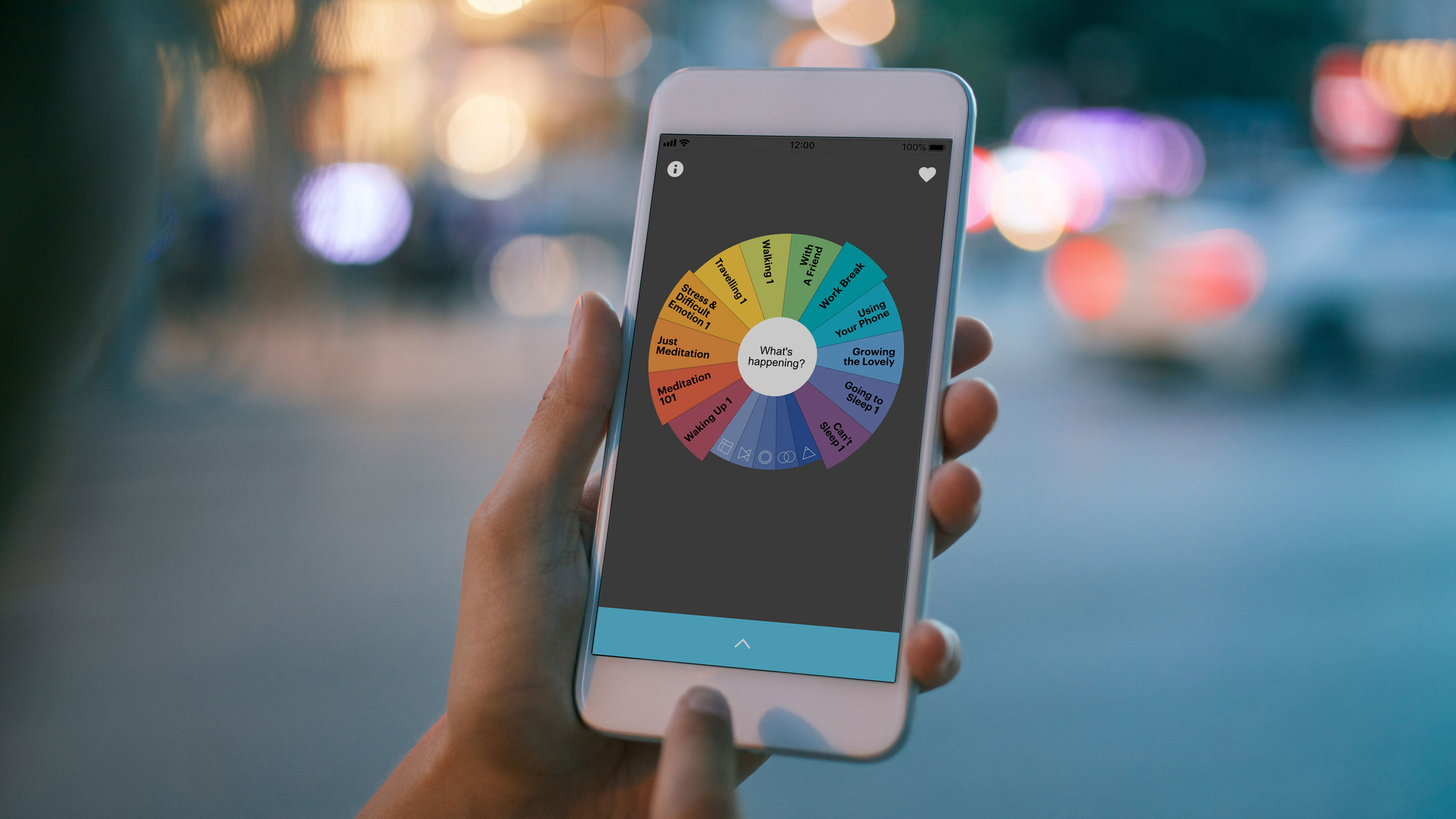Mindfulness apps have emerged as a powerful tool for cultivating mindfulness and enhancing mental well-being. With the growing popularity of these apps, it’s essential to understand their benefits, features, and how to choose the right one for your needs.
Mindfulness apps offer a range of guided meditations, breathing exercises, and cognitive therapy techniques, making mindfulness accessible to everyone.
Overview of Mindfulness Apps
Mindfulness is a practice that involves paying attention to the present moment without judgment. It has been shown to have numerous benefits, including reducing stress, improving sleep, and increasing focus.
In recent years, there has been a growing popularity of mindfulness apps. These apps provide guided meditations, exercises, and other resources to help users practice mindfulness.
Popular Mindfulness Apps
- Headspace: This app offers a variety of guided meditations, ranging from beginner to advanced. It also includes courses on mindfulness, sleep, and stress.
- Calm: This app offers a variety of guided meditations, as well as sleep stories, music, and other resources to help users relax and de-stress.
- Insight Timer: This app offers a wide variety of guided meditations from different teachers and traditions. It also includes a timer and a community forum.
Types of Mindfulness Apps
Mindfulness apps vary in their primary focus, offering different features and benefits to users. These apps can be broadly categorized into the following types:
Meditation Apps
Meditation apps provide guided and unguided meditation sessions, ranging from beginner-friendly introductions to advanced practices. They often include various meditation techniques, such as mindfulness of breath, body scan meditations, and loving-kindness meditations. Meditation apps are suitable for individuals seeking to reduce stress, improve focus, and cultivate inner peace.
Breathing Exercise Apps
Breathing exercise apps focus on teaching and guiding users through various breathing techniques, such as diaphragmatic breathing, alternate nostril breathing, and box breathing. These apps aim to improve respiratory health, reduce anxiety, and promote relaxation. They are particularly beneficial for individuals experiencing stress, anxiety, or respiratory issues.
Cognitive Therapy Apps, Mindfulness apps
Cognitive therapy apps incorporate principles of cognitive-behavioral therapy (CBT) into their programs. They provide tools and exercises to help users identify and challenge negative thought patterns, develop coping mechanisms, and improve emotional regulation. Cognitive therapy apps are suitable for individuals struggling with anxiety, depression, or other mental health challenges.
Features and Functionality of Mindfulness Apps

Mindfulness apps offer a range of features and functionality to support users in their mindfulness practice. These features enhance the user experience and make it easier for individuals to incorporate mindfulness into their daily lives.
Common features include:
- Guided meditations:Provide step-by-step instructions for mindfulness exercises, helping users to focus their attention and cultivate present-moment awareness.
- Progress tracking:Allow users to track their progress over time, providing motivation and accountability.
- Community support:Offer forums or chat rooms where users can connect with others, share experiences, and receive support.
Innovative features and integrations that differentiate certain apps include:
- Biofeedback:Integrates with wearable devices to provide real-time feedback on physiological responses during meditation, helping users to become more aware of their body and mind.
- Personalized recommendations:Use machine learning to tailor meditation sessions and content to the individual user’s needs and preferences.
- Gamification:Incorporates game-like elements, such as rewards and challenges, to make mindfulness practice more engaging and fun.
These features enhance the user experience by providing a comprehensive and personalized approach to mindfulness practice. They support users in developing their mindfulness skills, staying motivated, and connecting with others on their journey.
Benefits and Effectiveness of Mindfulness Apps

Mindfulness apps have gained popularity in recent years due to their potential to improve mental well-being and reduce stress. Scientific evidence supports the benefits of mindfulness practices, and apps provide a convenient and accessible way to incorporate mindfulness into daily life.
Scientific Evidence
- A study published in the journal JAMA Internal Medicinefound that mindfulness-based apps can reduce symptoms of depression and anxiety.
- Another study, published in Frontiers in Psychology, showed that mindfulness apps can improve sleep quality and reduce stress levels.
- Research from the University of California, Los Angeles (UCLA) suggests that mindfulness apps can increase attention span and improve cognitive function.
Testimonials
Many users have reported positive experiences with mindfulness apps. For example, one user said, “I’ve been using a mindfulness app for a few months now, and it’s really helped me to reduce my stress levels and improve my sleep.” Another user shared, “I’ve found that mindfulness apps have helped me to be more present and mindful in my daily life.”
Choosing the Right Mindfulness App

Selecting the ideal mindfulness app requires careful consideration of several factors.
Factors to Consider
- Needs and Goals:Identify your specific needs and goals for practicing mindfulness. Different apps offer varying levels of guidance, meditation techniques, and tracking features.
- Features:Explore the features offered by different apps, such as guided meditations, body scans, breathing exercises, sleep support, and progress tracking.
- Cost:Determine the cost of the app and whether it aligns with your budget. Some apps are free, while others offer premium subscriptions with additional features.
- User Reviews:Read reviews from other users to gain insights into the effectiveness, user-friendliness, and support provided by different apps.
- Compatibility:Ensure the app is compatible with your device and operating system.
App Comparison Table
| App | Features | Cost | User Reviews |
|---|---|---|---|
| Headspace | Guided meditations, body scans, sleep stories | Free (basic), Premium ($12.99/month) | 4.8/5 stars (App Store) |
| Calm | Guided meditations, sleep music, breathing exercises | Free (limited features), Premium ($69.99/year) | 4.7/5 stars (App Store) |
| Insight Timer | Largest free library of guided meditations, community forums | Free | 4.9/5 stars (App Store) |
| Ten Percent Happier | Guided meditations, courses, podcasts | Free (basic), Premium ($99.99/year) | 4.6/5 stars (App Store) |
| Simple Habit | 5-minute guided meditations, sleep stories | Free (basic), Premium ($9.99/month) | 4.5/5 stars (App Store) |
Finding the Right App
To find an app that aligns with your needs, consider the following tips:
- Try out free apps:Many apps offer free trials or limited features for free. Experiment with different apps to find one that resonates with you.
- Read reviews and ask for recommendations:Seek feedback from friends, family, or online communities to gather insights into the effectiveness of different apps.
- Consider your personal preferences:Choose an app with a user interface and meditation style that appeals to you.
Best Practices for Using Mindfulness Apps
To effectively integrate mindfulness apps into your daily routine, start by setting realistic goals and tracking your progress. Begin with short, manageable sessions and gradually increase the duration and frequency as you become more comfortable. Consistency is key, so aim to practice mindfulness for a few minutes each day, even if it’s just for a few minutes.
Setting Realistic Goals
- Start with short, achievable goals. Aim for 5-10 minutes of mindfulness practice each day.
- Gradually increase the duration and frequency of your practice as you become more comfortable.
- Set specific goals, such as practicing mindfulness before bed or during your commute.
Tracking Progress
- Use the app’s tracking features to monitor your progress and stay motivated.
- Set reminders to practice mindfulness throughout the day.
- Reflect on your practice regularly and make adjustments as needed.
Overcoming Challenges
- Expect challenges and don’t get discouraged. It’s normal to have difficulty focusing or staying present.
- Be patient and persistent. The benefits of mindfulness take time and practice.
- Find an app that suits your needs and preferences. Experiment with different apps until you find one that resonates with you.
Future Trends in Mindfulness Apps
Mindfulness apps are poised to continue growing in popularity as people seek ways to improve their mental health and well-being. As technology advances, we can expect to see even more innovative and effective mindfulness apps emerge.
Emerging Technologies and Innovations
Some of the emerging technologies and innovations that could enhance the mindfulness app experience include:
- Virtual reality (VR) and augmented reality (AR) can be used to create immersive mindfulness experiences that can help users feel more present and connected to their surroundings.
- Artificial intelligence (AI) can be used to personalize mindfulness practices and provide users with tailored guidance and support.
- Wearable devices can be used to track mindfulness practices and provide users with feedback on their progress.
Integration with Other Health and Wellness Platforms
Mindfulness apps are also likely to become more integrated with other health and wellness platforms, such as fitness trackers, sleep trackers, and meditation apps. This will allow users to track their mindfulness practices alongside other health and wellness data, and to receive personalized recommendations based on their overall health and wellness goals.
Conclusion

In conclusion, mindfulness apps provide a valuable resource for individuals seeking to improve their mental health and well-being. By integrating these apps into daily routines and following best practices, users can harness the transformative power of mindfulness and cultivate a more mindful and fulfilling life.
Questions Often Asked
What are the key benefits of using mindfulness apps?
Mindfulness apps offer numerous benefits, including stress reduction, improved sleep, enhanced focus and concentration, and increased emotional regulation.
How do I choose the right mindfulness app for me?
Consider factors such as the type of mindfulness practices offered, the user interface, cost, and reviews from other users to find an app that aligns with your needs and preferences.
Can mindfulness apps replace traditional mindfulness practices?
Mindfulness apps can complement traditional practices by providing guided meditations and support, but they are not a complete replacement for in-person instruction and group practice.
